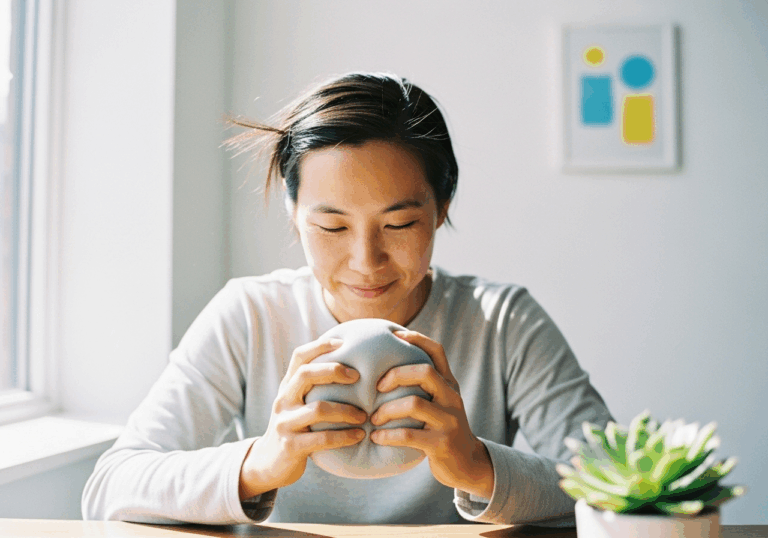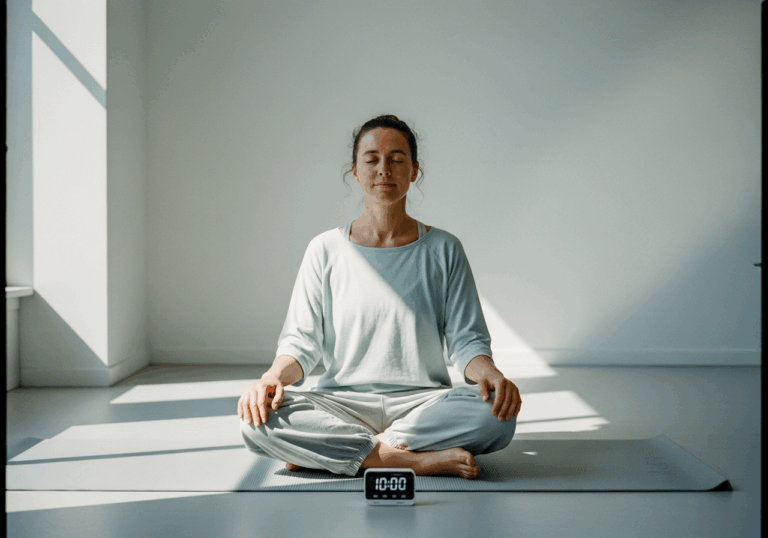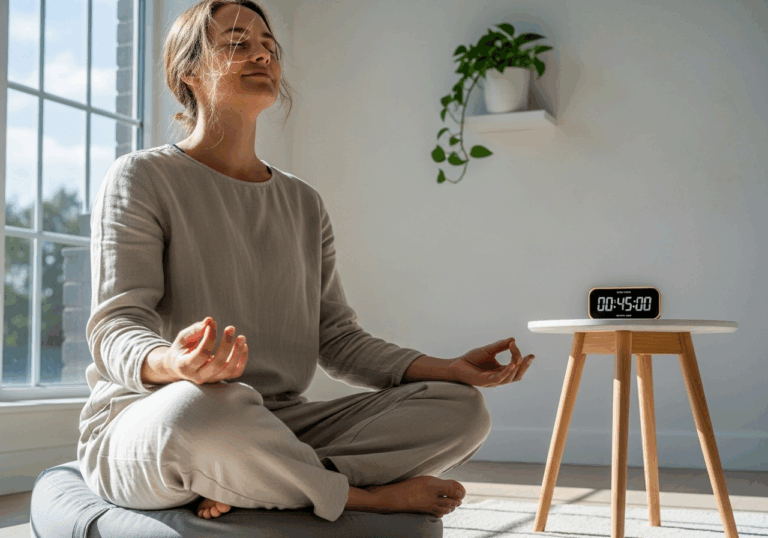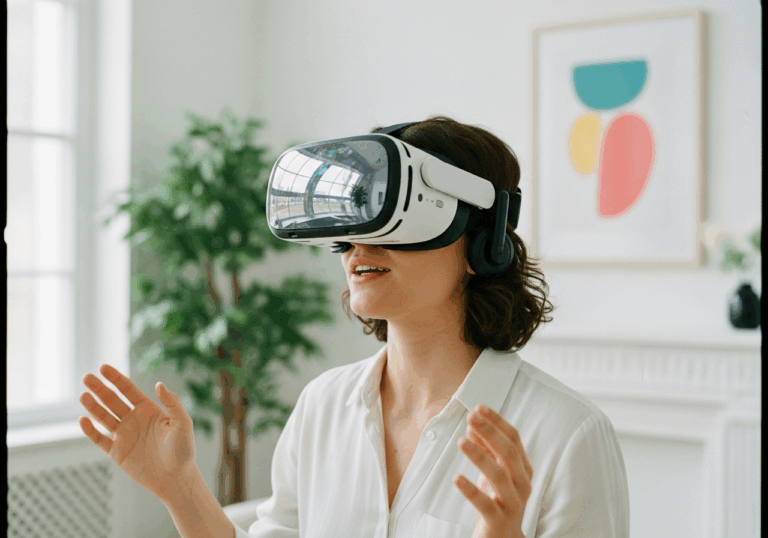Science-Backed Tips
Reduce Anxiety with Progressive Muscle Relaxation
15 minutes of PMR can lower anxiety by ~30%
📊 Did you know?
💡 Why It Matters
1️⃣
Reducing anxiety by ~30% can enhance performance and wellbeing in high-stress professions.
2️⃣
Lower anxiety levels may lead to improved sleep quality, which is crucial for overall health.
3️⃣
Effective stress management techniques like PMR can reduce healthcare costs associated with anxiety disorders.
✅ Try These Micro-Tips
🎯
Practice progressive muscle relaxation for 15 minutes before bedtime.
🎯
Incorporate deep breathing exercises during PMR to enhance relaxation.
🎯
Engage in PMR at least 3 times a week for optimal results.
🎯
Create a calming environment with soft lighting and minimal distractions during PMR.
📚 The study
This finding is crucial, as it highlights how releasing physical tension can anchor the body, effectively reducing anxious physiological activation and enhancing overall mood.
Why does this matter? In high-stress professions like nursing, lowering anxiety can lead to improved performance and well-being. Furthermore, reduced anxiety levels may contribute to better sleep quality, which is essential for maintaining overall health.
By incorporating effective stress management techniques such as PMR, healthcare professionals can not only improve their mental health but also potentially decrease healthcare costs associated with anxiety disorders. This study underscores the importance of integrating relaxation techniques into training programs, paving the way for a healthier, more effective workforce in the healthcare sector.
❓ Frequently Asked Questions ❓
Learn more
What is progressive muscle relaxation (PMR)?
Progressive muscle relaxation (PMR) is a technique that involves systematically tensing and then relaxing different muscle groups in the body. This practice helps to reduce physical tension and promote a sense of calmness and relaxation.
How does PMR affect anxiety levels?
PMR has been shown to lower anxiety levels by approximately 30%, particularly in high-stress professions like nursing. By releasing muscle tension, PMR helps to reduce physiological arousal associated with anxiety.
How long should I practice PMR for it to be effective?
Practicing PMR for 15 minutes before bedtime is recommended for optimal results. Consistency is key, so engaging in PMR at least three times a week can enhance its effectiveness.
Can PMR improve sleep quality?
Yes, reducing anxiety through PMR can lead to improved sleep quality, which is essential for overall health. A calmer mind and body can facilitate falling asleep and staying asleep.
What environment is best for practicing PMR?
Creating a calming environment with soft lighting and minimal distractions is ideal for practicing PMR. This helps to enhance relaxation and focus during the exercise.
How does PMR impact performance in high-stress jobs?
Lower anxiety levels achieved through PMR can enhance performance and well-being in high-stress professions. By managing stress effectively, individuals may be better equipped to handle challenging situations.
What additional techniques can enhance PMR?
Incorporating deep breathing exercises during PMR can further enhance relaxation. Deep breathing helps to slow the heart rate and promote a deeper state of calm.
Is PMR suitable for everyone?
PMR is generally safe and beneficial for most people, but those with certain medical conditions should consult a healthcare professional before starting. It’s important to ensure that the practice aligns with individual health needs.
How does PMR compare to other relaxation techniques?
PMR is one of many effective stress management techniques, and it specifically targets muscle tension. Other methods, like mindfulness or meditation, may also be beneficial but focus on different aspects of relaxation.
What were the study findings regarding PMR and anxiety?
The study found that anxiety was significantly lower in the PMR group, with a reduction of approximately 30% compared to a quiet sitting control. This highlights the effectiveness of PMR in managing acute anxiety.





